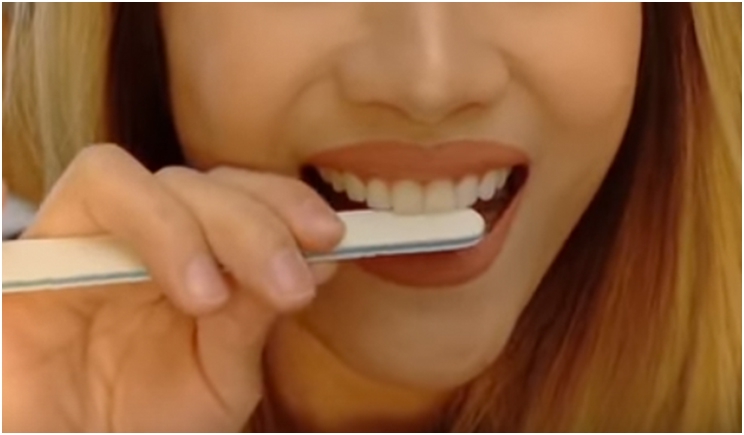
When the World Health Organization (WHO) recommended that patients delay routine dental visits until the pandemic was under greater control, it shook the dental industry. Not only had our practices been forced to close for a certain length of time, but the WHO was now telling the world that dental care was unimportant to the healthcare landscape as a whole.
While the critical role that dentistry plays in one’s overall health has often been misunderstood, the fine skills of dentistry and the knowledge of proper professional care also become undervalued.
Although the ADA quickly and publicly disagreed with the WHO, acknowledging that dentistry is essential healthcare and that “millions of patients nationwide have safely visited their dentists” during the pandemic, it apparently was not enough to keep some patients from taking their dental health into their own hands.
The Bane of Social Media
Reports of improper at-home dental care have raised concerns in the industry as do-it-yourself (DIY) trends have become popular on social media.
Vdeos on Instagram, Facebook, Twitter, and other channels have featured the misuse of over-the-counter mouthguards, denture repair kits, and dental wax. Some people have used nail files to even out their teeth and superglue to fix cracked teeth. Others have even given themselves fillings and extracted their own teeth in online videos. However, these DIY dentistry hacks present some significant risks:
- Reports of increased teeth grinding due to stress from the pandemic are widespread. However, instead of making an appointment to obtain a custom mouth guard properly fabricated by their dentist, people are relying on over-the-counter guards. Drugstore mouth guards can lead to movement among the teeth and ulcers on the gums.
- Cracked dentures or dentures broken in half are unrepairable by DIY means, and people who experience these issues should see their dentist. Yet many people who have cracked or broken dentures are trying to use denture repair kits themselves instead. Furthermore, denture repair kits hardly ever work and may include harsh chemicals that users can ingest when they’re used incorrectly.
- Paraffin wax is a decent temporary fix to prevent broken teeth from tearing the skin inside the mouth to avoid potential irritation or infections. However, many people are altogether forgoing a dental visit and relying solely on overusage of over-the-counter dental wax. Dental wax is seemingly harmless but can be too soft and melt away or, worse, be swallowed.
- Dental pain topicals can result in chemical burns and mask more serious problems.
- Teeth-whitening attempts using baking soda or bleach from the kitchen cabinet won’t whiten teeth but could cause gastrointestinal problems instead.
- Filing teeth with everyday nail files to fix uneven, chipped, or rough edges can damage teeth and lead to infection.
- Cavity fillers rarely remain in the tooth and can cause allergic reactions in some users.
- Extractions may snap the tooth off at the gumline, leaving a root tip, which acts like an infected splinter.
The Importance of Communication
Although the ADA has strongly warned people against this behavior, it is up to us trusted local dentists to help spread the word and promote professional care.
It is imperative that we caution the public that these DIY trends can cause permanent damage. We must tell patients that if they have any immediate needs or concerns, we encourage them to talk to their dentists rather than taking matters into their own hands.
Dental offices have implemented extraordinary safety measures and put in place exhaustive new procedures, including advanced personal protective equipment and enhanced infection control protocols.
Many offices, including my own, have added advanced equipment such as extraoral suction units that suck aerosols away from the mouth, preventing them from entering the airstream. This enables clinicians to perform high-speed-drill dental procedures and dental hygiene ultrasonic cleaning without the risk of transmitting any viruses.
Furthermore, dentists can examine patients and recommend customized treatments through virtual dental consults that will help identify the root of the problem before an in-person visit is necessary.
We all remember back in 2018 when more than 160,000 dentists worked on an advertising campaign warning the public of the dangers of DIY dentistry. Well, it’s up to us to do it again.
During this pandemic, the number of DIY-ers has increased exponentially. Therefore, it is increasingly important that patients talk to their dentists about concerns and questions they have about their teeth. Dental hygiene is crucial to overall health, and we have to ensure the message of safety and concern gets out to everyone before it’s too late.
Dr. Josephs practices implant cosmetic and general dentistry with an emphasis on implants, veneers, and complex crown and bridge treatment in Palm Beach, Florida. He is on the staff at JFK Medical Center and is a faculty advisory board member at McGill University’s Faculty of Dentistry. He completed his residency at Manhattan’s Beth Israel Medical Center and Mt. Sinai Hospital and was published in the Journal of the ADA in October 2017. He also is a twice published author, writing Tooth Talk and More Tooth Talk, the latter publishing in 2020. Learn more at palmbeachdentist.com.
Related Articles
25% of UK Households Have Performed DIY Dentistry During the Lockdown
OHF and BOS Warn Patients About “DIY” Orthodontics
Brace Yourself for DIY Orthodontia



